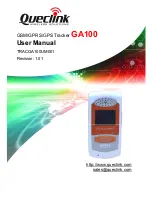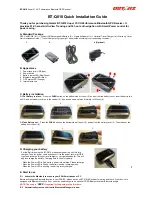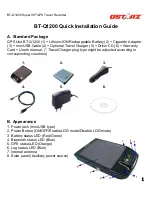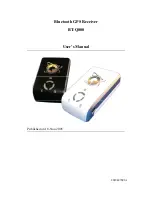
GNS 430 Quick Reference
POWER ON
4
3) Once the self-test concludes, the Database
Confirmation Page is displayed, showing the
effective and expiration dates of the Jeppesen
database on the NavData® card. Press the
ENT
Key to acknowledge the Database Page
and proceed to the Instrument Panel Self-test
Page.
4) The Instrument Panel Self-test Page allows the
pilot to verify that the GNS 430 is communicating
properly with in-panel instruments. Compare
on-screen indications with the information
depicted on connected instruments, such as the
CDI, HSI, RMI, and/or external annunciators.
After verifying proper operation, press the
ENT
Key to display the Satellite Status Page.
SCREEN LAYOUT (WINDOWS)
The GNS 430’s display is divided into three separate
‘windows’ (or screen areas). The left 1/4 of the display
provides a COM window (top two lines) and a VLOC
window (bottom two lines). The right 3/4 of the display
consists of a GPS window, which shows the various
navigation, waypoint information and settings ‘pages’.
COM Window;
GPS Window
VLOC
Window
Active Frequency
Standby Frequency
Each unique screen of information is referred to as
a page. Pages are typically selected using the small and
large right knobs, with the cursor removed from the GPS
Window. See pages 6 and 7 for details on arrangement of
the GNS 430’s main pages.
CURSORS
There are two separate cursors: a tuning cursor and a
GPS window cursor. The tuning cursor is used to select
the standby COM or VLOC frequency. If desired, press
the small
left
knob to move the tuning cursor to VLOC
Window. Then, use the small and large
left
knobs to
select the desired frequency. The
COM Flip-flop
and
VLOC Flip-flop
keys are used to activate the selected
frequency.
Содержание GNS 430
Страница 1: ...GNS 430 430A Quick Reference...





































